ed note–Reposted in light of Pres. Trump’s recent interview where he warned very clearly that ‘the world is going to be blown to pieces’ and therefore WHY it was that Judea, Inc moved heaven, hell, and everything in between for 5 years in first trying to prevent his being elected, and then failing in that endeavor, seeing him removed and replaced with someone more to Judea’s liking.
It is also being reposted in underscoring/reminding everyone just how INTELLECTUALLY AND MORALLY DYSFUNCTIONAL huge swaths of the ‘911/anti-Zionist Truth movement’ have become, given that during those 5 intolerable years of Judea, Inc’s seek-and-destroy mission against DJT, major players, the ‘intelligentsia’ within that same ‘movement’ added their own voices to those of Netanyahu’s NeoCon brigades in America and the West in helping to bring DJT down, much of it based upon the completely false premise that he was out to ‘start WWIII’ per the demands of Benjamin Netanyahu.
Original ed note–Never before in America’s history has the entire world been witness to the kind of concerted, over-the-top, ear-splitting screeching campaign to get rid of one man seeking the Presidency and the role that powerful organized Jewish interests have played in all of this.
And, as much as we may be uncomfortable with making the claim of ‘Eureka’ in solving the WHY of this campaign against Trump, we are confident that we have stumbled across a very big piece to this puzzle–
Trump’s plans for taking away Israel’s nuclear weapons.
The article below features a one-on-one interview that Trump did in 1985, 35 years ago, in which he mentions several important items that would definitely have caught the attention of the all-seeing eye of Judea, Inc at that time–
1. His desire to see a nuclear-weapons-free world, and especially in the Middle East,
and–
2. His very ‘high level’ contacts in the White House with whom he was meeting/discussing this issue.
Now, it is a matter of faith for those who have read or at least are aware of the thesis brought forth by the late, great, and greatly-missed Mike Piper that it was Israel and her Mossad murder machine responsible for assassinating JFK in Dallas and did so primarily because of his plans for keeping the Middle East nuke-free.
And within the context of this interview, Trump states plainly that it was/is his plan for doing exactly the same thing, and utilizing all the military, economic, political, and diplomatic might of the USA to do it.
Enough to account for the diabolic screeching to which all have been witness now for the last 5 years?
Absolutely. If Israel would go so far as to MURDER in broad daylight an American president intent upon taking away her ‘toys’ then she would certainly be willing to engage in a political assassination of another POTUS planning on doing the same thing.
Please note as well, that for the last 5 years, POTUS DJT has referred to his plans of solving the Middle East situation as–
drum roll please–
The ‘Ultimate Deal’
The exact same phraseology used in the title of the piece below written 35 years ago, a little ‘hint’ dropped by Trump over and over again both during his campaign and during the 4 years of his presidency in order to drive peoples’ interest to this article so that they can better understand what it is he has in mind in bringing ‘peace’ to the Middle East–
De-Nuclearization.
And the pirates of Judea will have NOTHING of it…
Hence this–
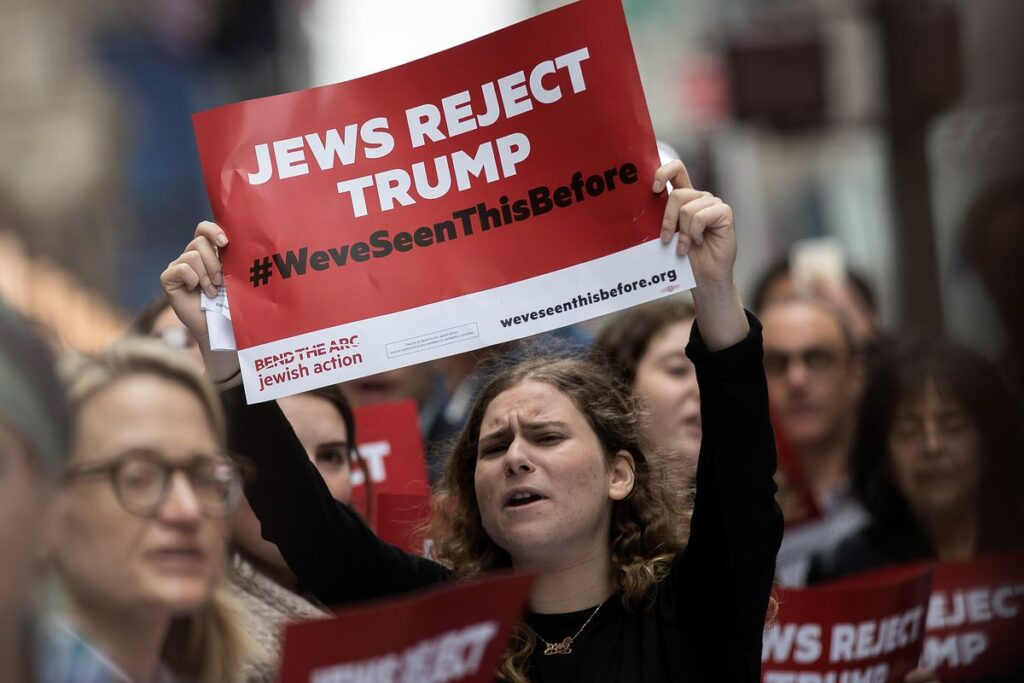
And this–
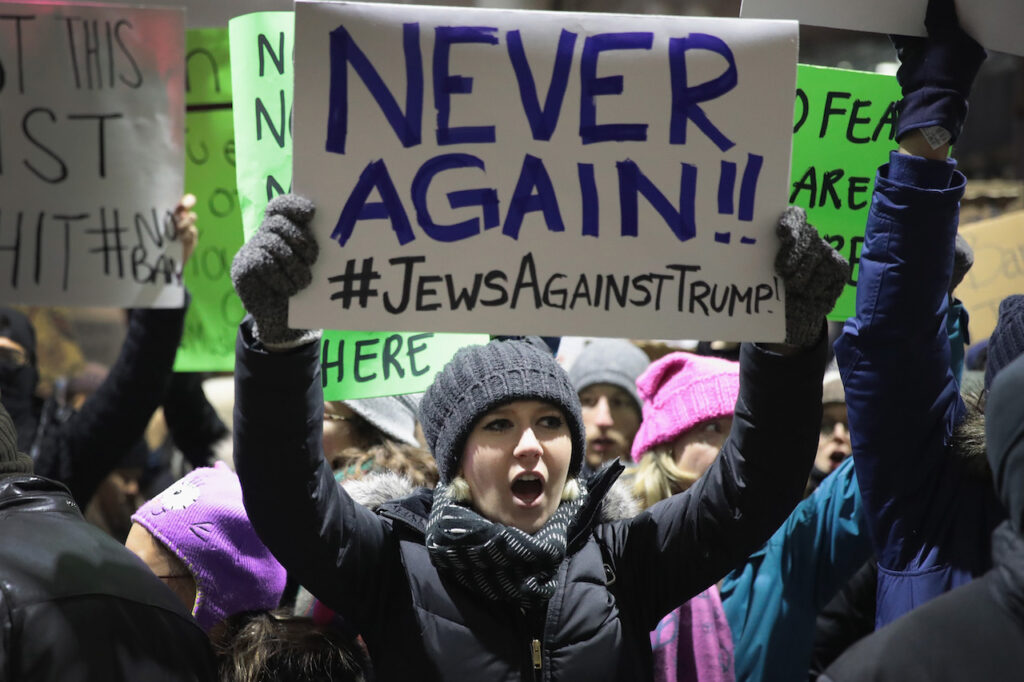
and this–
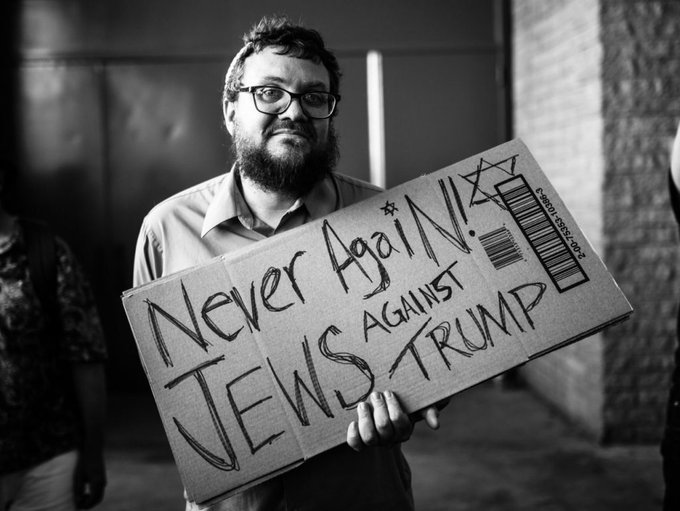
and THIS–
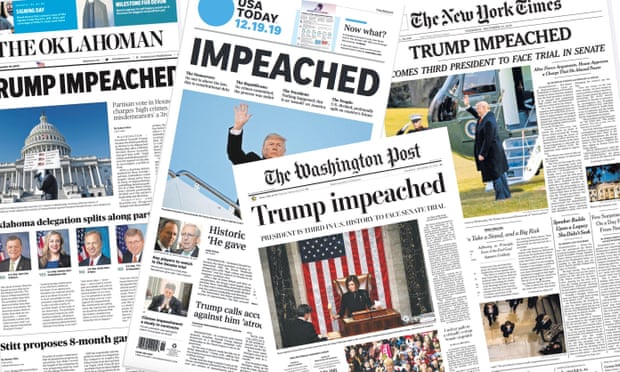
AND THIS–
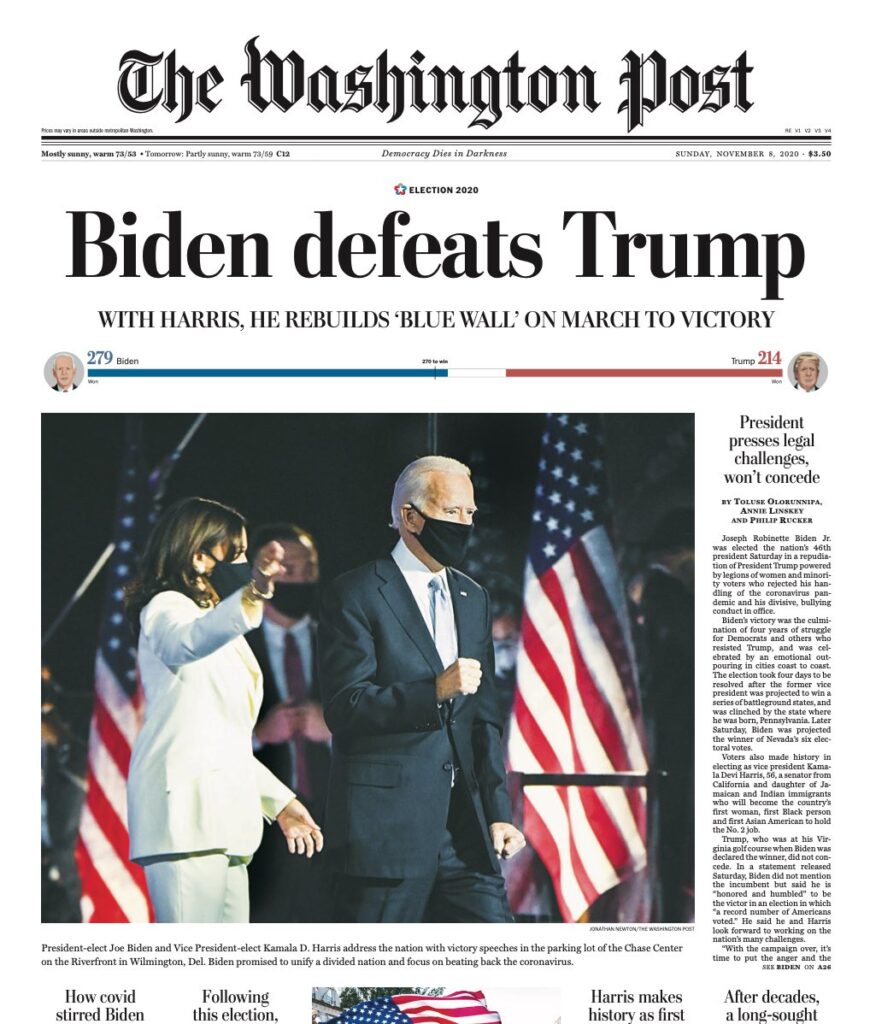
In order to bring about THIS-–
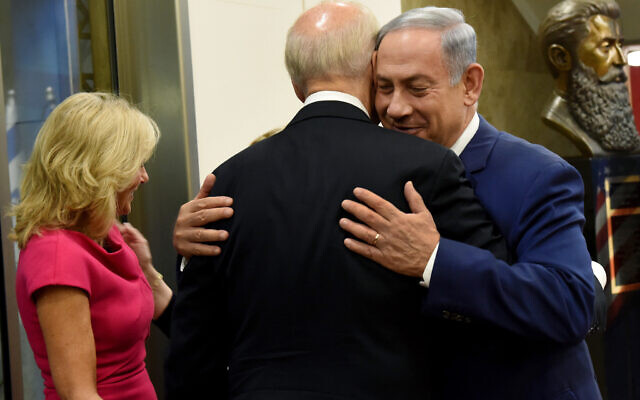
by Ron Rosenbaum for Manhattan Magazine
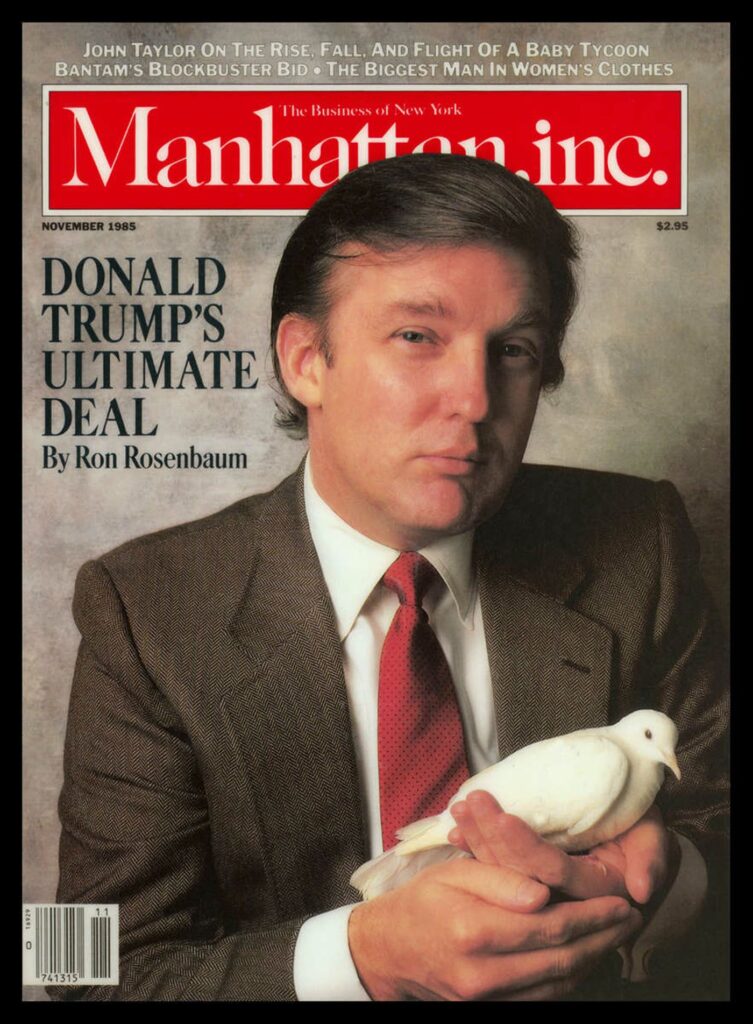
November 1985
Forty-eight hours before our scheduled lunch, Donald Trump called to cancel it. He’d had severe second thoughts, he said, about the advisability of revealing the extent of his involvement in the delicate — and explosive — subject I’d wanted to discuss with him.
‘I’m dealing at a very high level on this,’ he said…’With people in Washington…In the White House’.
There was too much at stake for him to risk the wrong kind of exposure on ‘The Subject’.
‘The Subject’ has itself been the topic of considerable delicate pre-lunch negotiations between Trump and the magazine. Trump was enthusiastic when he first heard I wanted to focus on ‘The Subject’.
‘That’s great,’ he said: ‘The Subject’ is far more important than any development deal I’ve ever done or any deal I’ll ever do.’
The life-or-death nature of ‘The Subject’ transcends mere real estate. He’s pursuing it as if it were the biggest deal of his life.
The Ultimate Deal.
But now he’s changed his mind about talking about it. ‘It’s awesome what’s at stake here,’ he said, ‘and some writer who’s cynical could come along and try to make me look like an idiot and ruin my credibility.’
In addition, his PR adviser told him he shouldn’t talk about ‘The Subject’ at all, that he should only be plugging the success of the Trump Tower Atrium. Cancel the lunch.
After further negotiations however, we arrived at a compromise. We could talk about the Trump Tower Atrium and ‘The Subject’. Or we could talk about talking about ‘The Subject’, which I believe is where things stood when I arrived at Trump’s office.
Trump was on the phone with some Midwestern senator when I walked into his office. He was promising to buy a table at some kind of fundraiser he wouldn’t be able to attend. While I waited, I got a chance to gaze at the three-sided panoramic view of Manhattan through the tall windows of Trump’s office. I got a chance to watch Trump upside down in the gold mirror tiles on the ceiling above his desk.
When Trump got off the phone we talked about ‘The Subject’ and quickly negotiated the following deal: Trump would agree to talk about ‘The Subject’ as long as I’d agree not to reveal in this article just what ‘The Subject’ was.
Just kidding. See, that’s just the kind of thing Trump is worried about. And that’s why—as I write this—I’ve come to feel protective about Donald Trump. I want to protect him from my own most cynical instincts, the side of me that might be tempted to go for a cheap joke, an easy laugh at the expense of Trump’s involvement with ‘The Subject’. Because when I first read a couple of references to Trump’s interest in ‘The Subject’ I have to admit I was skeptical, perhaps even cynical. But I’ve come to believe, from listening to him talk about it, that Trump is sincere about it.
This is a painful conclusion for me to come to in certain respects. Because ‘The Subject’ is nuclear weapons proliferation and Trump’s crusade to find a way to halt it before a wild-card nuke deals death to millions. And because I’ve become convinced that Trump’s involvement is, well, serious, I have to abandon all the easy jokes and wisecracks I could have made if I thought it was some weird ego trip by an overambitious real estate promoter eager to thrust himself into the national arena.
Since I don’t think that’s true, I won’t be able to make sarcastic remarks about nuclear war being bad for real estate values, about the danger of landlords acquiring neutron bombs as a way of dealing with stubborn tenants blocking condo conversions, about co-oping the missile silos and sending surprise eviction notices to the Soviets.
Actually, it was more than Trump’s sincerity that convinced me to abandon such unworthy material. Something else convinced me. As soon as I heard of Trump’s initial enthusiasm for talking about ‘The Subject’, I went out and got a copy of the Bulletin of the Atomic Scientists special issue reviewing the sorry state of the nuclear nonproliferation treaty. And then read, for the first time, Deadly Gambits, Strobe Talbott’s inside story of the Reagan administration’s pathetic and fraudulent nuclear weapons negotiations with the Soviets.
The Bulletin’s report was distressing, but the Talbott book was worse, a sickening chronicle of bunglers and clowns engaged in Machiavellian bureaucratic maneuvering, the main purpose of which was to find the most effective means of deceiving the American people. Pretending to seek an arms control agreement while deliberately sabotaging any chance of a real deal in favor of foolishly conceived arms-race escalations such as the notorious ‘Dense Pack’ mode of basing the MX.
Remember the Dense Pack basing mode? That was Caspar Weinberger’s brilliant solution to the alleged vulnerability of the MXs he wanted to build. The genius of Dense Pack was to group all the MXs into one big missile field on the untested theory that hundreds of Soviet warheads targeted on this concentration would crash together in midair over the target and blow themselves up by ‘fratricide,’ leaving the MXs totally untouched.
If Congress could listen to Weinberger propose spending billions of dollars for this mad-as-a-hatter scheme without having him medicated, I could certainly listen to Trump’s plan to halt nuclear weapons spread, and take it seriously.
After all, these people—Weinberger’s Dense Pack of ‘defense intellectuals’—not only did not want to make a deal, they wouldn’t know how to make a deal if they did.
And one thing Donald Trump knows how to do is make deals.
And so it occurred to me in the aftermath of reading Deadly Gambits: What could we possibly have to lose by placing all nuclear negotiating in the hands of Donald Trump? At least the guy knows how to negotiate. And after all, it’s not without precedent for a smart businessman to come up with a brilliant deal in the nuclear weapons field: Many historians of the arms race argue that the United States and the Soviet Union missed an irretrievable opportunity to stop the arms race before it could begin back in 1946 when the Baruch Plan was rejected. Financier Bernard Baruch, you might recall, proposed that both superpowers place all atomic technology under the control of an international authority that would prohibit weapons development. Rejection of the Baruch Plan is regarded by many as one of the great Lost Opportunities in modern history.
Perhaps someday history will look back with similar regret at the Trump Plan for halting the spread of nuclear weapons as another lost opportunity.
Or, if Trump gets his way with this, the way he does with other deals, it’s not inconceivable that history will look back on the Trump Plan’s acceptance as one of the few hopeful developments in the course of a miserable century.
In any case, you read it here first.
‘My uncle who just passed away was a great scientist,’ Trump is telling me as we make our way out of his office to the elevator. ‘He was a professor at MIT. Dr. John Trump. In fact, together with Dr. Van de Graaff they did the Van de Graaff generator. He was the earliest pioneer in radiation therapy for cancer. He spent his whole life fighting cancer and he ended up dying of it.’
It was his uncle, Trump tells me, who got him started thinking about ‘The Subject’.
‘He told me something a few years ago,’ Trump recalls. ‘He told me, ‘You don’t realize how simple nuclear technology is becoming.’ That’s scary. He said it used to be that only a few brains in the world understood it and now you have a situation where thousands and thousands of brains can easily understand it, and it’s becoming easier, and someday it’ll be like making a bomb in the basement of your house. And that’s a very frightening statement coming from a man who’s totally versed in it.’
Downstairs on the sidewalk outside Trump Tower, Trump gazes at a crowd of chanting demonstrators across the street.
‘Who are they?’ he asks me.
‘They’re anti-Marcos. They say he’s buying the Crown Building on the corner.’
‘Marcos doesn’t own it,’ Trump says. ‘They think he does, but it’s not him, it’s somebody else.’
Still, this sudden manifestation of Third World strife on his doorstep is a kind of confirmation of Trump’s fears, which center on a Third World madman getting the bomb.
Like Qaddafi.
Particularly Qaddafi.
Because Trump’s got inside information on the character of the Libyan dictator. From Qaddafi’s pilot.
‘I have a pilot who works for me who used to be Qaddafi’s pilot,’ Trump is telling me as we head through the crowds on Fifth Avenue in the direction of ’21.’ ‘He’s a highly trained American pilot. And I asked him, ‘What kind of guy is Qaddafi?’ And he told me, ‘Mr. Trump, you’ve never seen a man like this. This man would get onto his plane, and he’d slap his subordinates in the face. A total schizo.’
The pilot quit Qaddafi, Trump says. ‘He was being paid a fortune—he’s a great pilot—but he said, ‘I couldn’t stand it. He’d get into the plane, he’d scream, shout, slap people. He was crazy. You never knew. Hair-trigger.’
‘Hair-trigger.’ Trump foresees a situation soon when such ‘hair-trigger’ heads of state will have their hands on multiple nuclear triggers, and it drives him crazy that nobody in the White House senses the danger.
‘The fact is, it’s already very late. It’s one of the great problems of the world. Not ONE of them. It is THE problem. And yet it amuses me that when people in Washington talk about the big issues they talk about tax reform. The hours and hours and money and worse that’s spent on this ridiculous tax-reform issue…If one-half of the same effort were devoted to this much more important issue, you might be able to solve it.’
‘What explanation do you find for the lack of action on nuclear arms spread?’ I ask Trump as we approach the spear-topped iron gate of ’21.’
‘I’ll tell you why,’ Trump says. ‘People just don’t believe the inevitable. You know, there’s a feeling that it’s always going to happen to the other guy. I read something the other day about a football player who played five years and he saw a lot of guys getting hurt and he never thought it could happen to him. All of a sudden his knee’s gone and he’s out forever. You know—he’s gone. He never thought it could happen to him. Never thought.’
Inside ’21’ everyone greets Trump effusively. And me, suspiciously: An officious functionary sidles up to me and tells me to straighten up the knot of my tie. I think of various irresponsible remarks to make on the order of ‘Hey, fella, when Qaddafi gets the bomb, you’ll have more important things to worry about.’ But I resist the temptation. More is at stake here, I remind myself, than a cheap remark.
Upstairs at our corner banquette, Trump is greeting some sycophantic admirer, and this time a captain sidles up to me, points to his tie, and nods significantly at me. Evidently I haven’t straightened my knot sufficiently yet. I see him standing there pointing at his ridiculous little tie, and just pity his lack of awareness of the nuclear proliferation crisis, which, if you ask me, will make all questions of tie-straightness irrelevant.
We order drinks, a Heineken for me, a prim Virgin Mary for Trump, and he continues on the blindness of U.S. policymakers.
‘I believe they’re sort of fools,’ Trump says. ‘They only think about Russia. Russian and U.S. weapons. But the summit is a joke. It’s not about the real nuclear problem. You have countries like France that are openly and blatantly selling nuclear technology.’
Trump is very down on the French.
‘They’ve got an arrogant head of the country, who I think is a total fool, and he’s trying to make up for his losses by selling this technology to anyone, and it’s a disgrace. It’s a disgrace.’
So what’s the solution? I ask him. How do you get the French to stop, how do you get French technology out of the hands of the Pakistanis at this point?
‘I think you have to come down on them very hard economically or whatever way,’ Trump says. ‘I think the solution is largely economic. Because there are so many of these countries that are so fragile and we have a vast power that’s never been used. They depend on us for food, for medical supplies. And I would never even suggest using it except on this issue. But this issue supersedes all other things.’
He pauses.
‘I guess the easy thing would be to say you go in and clean it out.’
‘Like the Israelis did with the Iraqi plant?’
‘I don’t necessarily want to advocate that publicly because it comes off as radical. And you know, without a lot of discussion prior to saying that, it sounds very foolish and this is why I get very concerned about discussing it at all.’
Suddenly there’s an interruption. A guy leans over the partition that divides our banquette from his, and in a loud, braying voice calls out: ‘Hey, Donald, I want a piece of that deal.’
The intrusive mover-and-shaker is apparently under the impression that Trump and I are negotiating a deal.
‘Hi, Jack,’ Trump says. ‘You want a piece of the deal?’
‘Sure, Jack,’ I was hoping Trump would say. ‘We’re figuring out how to go in and clean out the Pakistani bomb-making facility at Islamabad. Care to handle munitions procurement for us?’
But instead Trump says blandly, ‘How are you? Good, Jack,’ and returns to the problem of getting the nuclear genie back in the bottle.
‘It’s really a bothersome thing,’ he says. ‘I don’t want this story. In fact, I would have preferred not having any story, and when I heard it was going to be about this I said forget it entirely. What I would have liked was a story on how well the Atrium at Trump Tower is doing.’
‘Well,’ I said to Trump, ‘we can get into that. Would you like to start out by telling me how well the Atrium’s doing?’
What followed was the single most surprising moment of our conversation, the one that convinced me that Trump’s interest in the nuke-spread issue was genuine.
He brushed aside my offer to listen to the Atrium success story and never once returned to it. The master salesman passed up a chance to make a pitch. Instead he returned to ‘The Subject’.
He spoke about Deadly Gambits and the bureaucratic sabotage that has destroyed the possibility of a deal on arms control between the superpowers. And why our negotiators wouldn’t know how to make a deal if they found one staring them in the face.
‘I will tell you,’ Trump says. ‘There is a vast, vast amount of difference between somebody who has consistently made great deals — and I don’t say me, by the way — of whatever nature, and there aren’t that many of those people, by the way; you have maybe a roomful of them in the whole country. There’s a vast difference between somebody who’s been consistently successful and somebody who’s been working for a relatively small amount of money in governmental service for many years, in many cases because the private sector, who have seen these people indirectly, didn’t choose to hire these people, any of them, because it didn’t find them to be particularly capable. But then, years and years later they get slightly promoted, promoted, promoted. The private sector has passed them by and all of a sudden these people are negotiating the lives of you and your children, your families, and I tell you there’s a tremendous amount of difference.’
He pauses in the midst of this impassioned analysis.
‘You know, a while ago you asked me to talk about the success of Trump Tower Atrium—it really does pale. It’s hard to get off this subject.’
What about deal-making as an art? I ask Trump. What separates those born with it from those who don’t have it?
‘It’s a total skill and an art. See — again, I don’t want to say I have it. I don’t want to come off saying that. I’m just talking about some people. Some people have an innate skill. There’s an ability to make deals. I mean I’ve gone into meetings when I’ve seen my people who are highly paid, very bright, they went to Harvard, they say the deal is dead. I’ll go in and make the deal. Not only will I make the deal but I’ll make it better than they could have. And on the other hand, I’ll hear people telling me that such-and-such a deal is guaranteed. It’s one hundred percent. It’s going to happen. And I’ll look at the people and I’ll say, ‘That deal will never happen. They will never make that deal. I guarantee it.’ A certain other deal, they’ll say, ‘No way it can happen.’ I’ll say, ‘They’re dying for it, it’ll happen.’ That deal will happen. The other won’t happen. I’ve seen sure things where it was blown because people didn’t know what they were doing. I’ve seen sure misses that were made successful because of the ability to sense that a deal could be done.’
Since we’re on the subject of deals, I ask Trump to fill me in on his most recent deal-making efforts.
‘I did the big deal with Hilton in Atlantic City a month ago,’ he begins. ‘That was a very big deal: I bought the largest gambling casino in the world. I just bought the St. Moritz Hotel. And of course there’s Lincoln West.’
‘What are you going to be doing with that, will you be scrapping the original plan?’
‘Yes,’ he says, ‘I don’t want it. I turned it in. I’m going through a whole zone change. It’s going to be an unbelievable project. Unbelievable. It’s going to be spectacular. Throughout the world they’ll be talking about this thing.’
‘Will it include the world’s tallest building?’
‘Well, between you and me, I’m looking at it and it’s probably the only site you could have it on because it’s so big. It’s over 100 acres. The West Side waterfront from 59th to 72nd streets. I bought the site for $100 million, and right after that two blocks to the east it was $500 million for a site that’s two and a half acres. And I have the whole waterfront for one hundred million. It’s a great piece,’ he says, deeply satisfied as he contemplates the deal. ‘I think it’s maybe gonna be the greatest purchase.’
How great?
‘This will be the biggest project in the history of the city. The West Side is booming. I bought—I mean I had a long-term right to it—I bought at a time the city wasn’t thriving as it is. It’ll be the most spectacular project ever if I get to do what I want to do.’
But what about that deal Trump seemed to disparage, that two and a half acres a little bit east of his mammoth Lincoln West site, the Coliseum tract, the one that developer-publisher Mort Zuckerman and Salomon Brothers paid close to a half-billion for? Wasn’t this a deal Trump bid on himself? Does he regret not getting it?
Trump has strong feelings about the Coliseum deal Zuckerman made. But they are closer to ridicule than regret.
‘No, I don’t regret it. Never once. When I heard what they bid for it, I said, ‘I didn’t lose. I won.’ You don’t win when you’re paying too much for something.’
‘They paid too much?’
‘Even if it works incredibly well, which I don’t think it will, at that price they couldn’t make any money. If it worked out moderately well, they could stand to lose a great fortune. And if it worked out badly, forget it. It’s just too much money.’
‘Could it sink them?’
‘I don’t know if it could sink them because I don’t know what their financial condition is. I know this: I think it’s a catastrophe. Hey, I bid $200 million less and somebody said, ‘What would happen if you got it?’ I said, ‘I’d ask for a recount, because the price I bid was ridiculous.’
‘What do you think was going through their minds, or what convinced them to pay half a billion?’
‘Maybe nothing. Take my word. Everybody was in the 200 million to 300 million range except some were less than 200. They paid 500 because they paid 46 plus they had to spend 40, 50 million on the subways, plus the carrying, plus to knock down the big building, and it’s going to cost them 10 for demolition. So they’ll end up spending $550 million before they get a shovel in the ground.’
In addition to the financial catastrophe he sees for the Coliseum site, he also sees a potential physical catastrophe for the city’s trouble-plagued convention center in the West 30s. Trump owned the land for the site and offered to build the convention center for $250 million. The people who got the building contract are now three years late and $200 million over budget. But Trump has more than an I-told-you-so for the convention center deal: He has a warning. He doesn’t think the sky’s falling, but he’s worried about the roof.
‘That roof is so large nobody knows what is gonna happen. You don’t have space-frame builders that can build a roof that large. And if you know anything about space frames … that roof will leak like a sieve, and who the hell knows what’s gonna happen when they have five feet of snow on a glass roof?’
‘Do you think it’s dangerous?’
‘I don’t know. I mean I would hope not. But tell me what’s going to happen if you have a five-foot snowfall and it’s sitting on a glass roof. l know I would prefer being at another location…’
Trump thinks the Golden Age of deals in Manhattan real estate may be coming to a close.
‘There were some big buyers in the bad time back around ’75,’ he says, ‘and I was one of those people.’
For the late-comers he sees slim pickings.
‘I mean, when a guy pays $500 million for the Coliseum,’ he says, returning to the deal his new rival in town just made. ‘That’s not successful. That’s paying top, top dollar. It’s unfortunate as opposed to the advantage I had of buying things years· ago when the prices were different. Today you can’t buy a little grocery-store site someplace on the West Side for what I paid for the Tiffany location, which is the best location probably in the world.’
The Golden Age of great deals is ending, and people are working with mere scraps and patches now, he says.
‘They put together these half-baked sites in the middle of a block with a half a block here, a half a brownstone there, a 14-foot entryway from the other street because it’s zoned industrial. I think they’ll be killed.’
And he doesn’t see anybody making a killing in the office tower market either.
‘I think office space in midtown won’t be doing particularly well. Downtown is not doing well either. I’ll tell you, Ron, the ones that are going to be hurt very badly are those that are working in marginal developments in marginal properties, and you see a lot of them. I think these people are going to be absolutely killed.’
And what was the greatest deal Trump made in the Golden Age of dealing? He won’t specify, but he does speak with special fondness of a certain Atlantic City deal that gives him what he calls ‘infinite return.’
‘That was the casino in Atlantic City I started to build, and then Holiday lnn came in. They put up about $220 million to build a hotel I’d already started. I was under construction. I was on the third floor and they came to me and they wanted to put up money and guarantee everything, and I said to myself, ‘Why should I own 100 percent and have maybe 250 million of my own money in the deal when I can own 50 percent and have nothing in the deal, and in fact have a guarantee that if the place should ever lose money, they guarantee it?’ So they guarantee it and they get no management fees, nothing. I own 50 percent of that casino for zero money in and substantial money out.’
‘That sounds like a pretty good deal.’
‘In the true sense that’s what they call an infinite return. It’s not a return on the investment. It’s an infinite return because I got 50 percent of the casino for nothing. That’ll make a lot of money.’
And then there was the deal he almost made, the one that might have brought him not infinite return but infinite regret.
‘I was going to go into the oil business two and a half years ago with a very big stake in a company which couldn’t miss and just at the last moment I decided not to. And the company, it was a very, very, very, very large group of companies privately held by a lot of very—at the time—wealthy individuals. And I’ll tell you, it filed for bankruptcy. That was in a way the best deal I ever made in that I didn’t make it. That would have taken everything I had out of Atlantic City. It was one of those sure things that I decided not to go into that everybody had me convinced I should. It would have cost me hundreds of millions of dollars.’
‘What made you decide to back out at the last minute?’
‘Well for one thing, there was something about digging holes in the ground that didn’t really interest me. You know, I was talking to a guy who’s in a very successful electrical-cable business and he passed Trump Tower and he said, ‘Donald, the thing that’s beautiful about your business is that you can see it. I spend hundreds of millions on cables and I throw it in the ground and no one gets to see it. There’s no gratification. But look what you have—you’re artistic, it’s your building.’ So with this oil—I was talking with the geologists and they were talking about different standards of probabilities that there’d be oil under the ground and I said, ‘This is ridiculous. It’s a total crapshoot.’ So I didn’t go in on it. If I’d made that deal we probably wouldn’t be talking today, unless you were here to ask me, ‘How did you blow it all, where did you go wrong?’
But the thrills and perils of deal-making no longer have the same excitement for Trump these days. Not compared with ‘The Subject’.
‘Nothing matters as much to me now,’ Trump says.
He’s been ‘spending so much time on this other thing,’ he says, meaning ‘The Subject’, that he’s hardly had time to think of conventional deals. Because he’s on the track of a much bigger kind of deal, his Ultimate Deal. The Trump Plan.
Of course, he doesn’t call it the Trump Plan. And he denies that he wants to be the one to make the deal. But he’s convinced there’s a deal there to be made, that it’s now or never, and that the people down in Washington are not doing anything to get the deal done.
‘Why don’t they have the sense of urgency you feel?’ I ask Trump.
In part, it’s the Qaddafi’s Pilot Factor, he says.
‘Those people think that because we have it and the Russians have it, nobody will ever use it because they’re assuming everybody’s not necessarily mad. They don’t see Qaddafi walking into an airplane and slapping his subordinates and screaming like a madman on the airplane to the pilots. The man is a psycho.
‘I mean, what if he’s got the bomb and something happens like the time we shot down two of his planes. And he’s enraged and he can’t see straight and he’s got twenty missiles pointed right at the United States. Washington. I mean, do you think there’s a chance he won’t press the button?’
‘And then there’s the briefcase bomb.’
‘Carry it in your briefcase, right. I’m not even talking about airplanes and missiles. You’ll walk in with your damn tape recorder,’ he says, pointing to my innocent Sony, ‘and you’ll say it’s a tape recorder and nobody will be able to tell the difference. I mean, that’s where it’s going to be in 20 years.’
But what makes him think he can do anything to forestall the wild-card nuke horror he envisions?
‘I don’t think I have to be the one. I’m not saying this to promote myself. But it has to be somebody or only a few people. Somebody who has the ability to make a deal. Because there’s a deal there to be done absolutely. But not by the present players,’ he says, referring to current American negotiators and Reagan negotiators. ‘They have no smiles, no warmth; there’s no sense of them as people. Who the hell wants to talk to them? They don’t have the ability to go into a room and sell a deal. They’re not sellers in the positive sense.’
So what is the deal Trump thinks can be done? What is the Trump Plan?
It’s a deal with the Soviets. We approach them on this basis: We both recognize the nonproliferation treaty’s not working, that half a dozen countries are on the brink of getting a bomb. Which can only cause trouble for the two of us. The deterrence of mutual assured destruction that prevents the United States and the USSR from nuking each other won’t work on the level of an India-Pakistan nuclear exchange. Or a madman dictator with a briefcase-bomb team. The only answer is for the Big Two to make a deal now to step in and prevent the next generation of nations about to go nuclear from doing so. By whatever means necessary.
‘Most of those [pre-nuclear] countries are in one form or another dominated by the U.S. and the Soviet Union,’ Trump says. ‘Between those two nations you have the power to dominate any of those countries. So we should use our power of economic retaliation and they use their powers of retaliation and between the two of us we will prevent the problem from happening. It would have been better having done something five years ago,’ he says. ‘But I believe even a country such as Pakistan would have to do something now. Five years from now they’ll laugh.’
‘You think Pakistan would just fold? We wouldn’t have to offer them anything in return?’
‘Maybe we should offer them something. I’m saying you start off as nicely as possible. You apply as much pressure as necessary until you achieve the goal. You start off telling them, ‘Let’s get rid of it.’ If that doesn’t work you then start cutting off aid. And more aid and then more. You do whatever is necessary so these people will have riots in the street, so they can’t get water. So they can’t get Band-Aids, so they can’t get food. Because that’s the only thing that’s going to do it—the people, the riots.’
‘But what about the French?’ I ask Trump. ‘They—’
‘I’d come down on them so hard,’ he says. ‘Because I think they’ve been the worst example of—’
‘But they already have the bomb. Do you think they’ll give it up?’
‘Well, I tell you if they didn’t give it up—’
‘Look, they blew up the Greenpeace ship—’
‘They’ve got the bomb, but they don’t have it now with the delivery capability they will have in five years. If they didn’t give it up—and I don’t mean reduce it, and I don’t mean stop, because stopping doesn’t mean anything. I mean get it out. If they didn’t, I would bring sanctions against that country that would be so strong, so unbelievable…’
OK, I didn’t say the Trump Plan was a sophisticated diplomatic document. It’s a little crude at this point. It’s a vision of a deal. It doesn’t have the imprimatur of the military geniuses who came up with Dense Pack. Think of it as a kind of Modest Proposal.
That’s why I feel protective about Trump. It’s not that think he’s got the solution, but I like the visionary urgency he brings to the problem. I like the fact that he’s using his Washington contacts, the access his money buys him, to bug the torpid Reaganauts to do something rational in the nuclear realm.
Trump drops enough names, off the record, to convince me he does have high-level contacts, that he may indeed be ‘dealing at a very high level on this.’
I don’t know how seriously they take him there, I get a sense that he’s probably — to his credit — made a pest of himself, that the D.C. people probably regard Trump’s calls on ‘The Subject’ with the same enthusiasm as the guests at the wedding feast regarded the prospect of listening to the Ancient Mariner’s tale. Remember the way Coleridge’s glittering-eyed stranger began buttonholing the guests at the feast to tell them of the vision of horror he’d beheld out there in the watery wasteland, the hellish encounter with the albatross that haunted him still.
Trump is a bit like the Ancient Mariner here at ’21.’ In the midst of the manic chatter of feasting deal makers, he’s haunted by the vision of a madman in the desert wasteland, the vision of Qaddafi’s pilot.
Hey, Donald! I want a part of that deal!
That kind of deal doesn’t seem to gratify him the way it once did. He’s looking for a deal of a different sort. The vision of Qaddafi’s pilot has made Trump a stranger at the feast.
